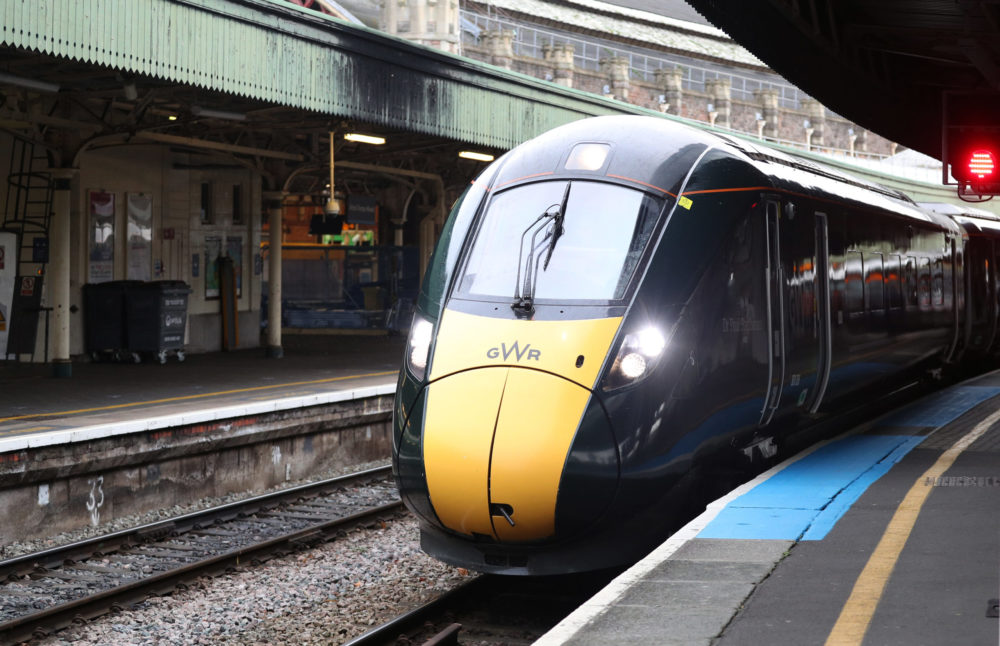UK train fares highest in Europe, study claims

Train operators serving the UK are the most expensive in Europe, according to new analysis.
Great Western Railway fares are two-and-a-half times higher than the average across European Union (EU) and Swiss operators for routes of similar lengths, the study by campaign group Transport & Environment (T&E) found.
Avanti West Coast passengers pay one-and-a-half times more.
Ticket prices were calculated by examining average costs for standard fares in second-class carriages on weekdays, with purchases made both seven and 28 days in advance.
More than 8,000 tickets were tracked.
Special fares and reductions were analysed separately.
‘Private monopolies’
The analysis of 27 European operators found that “travelling by rail in the UK is particularly costly”, adding that high infrastructure costs and “private monopolies” have “a responsibility” for this.
The finances of English train operators are heavily influenced by the Government due to contracts introduced because of the coronavirus pandemic.
Meanwhile, Eurostar fares were found to be nearly double the price of other European operators offering long-distance high-speed journeys of a similar length.
These elevated fares “cannot be attributed solely to costs associated with the Channel Tunnel”, the report said.
A Eurostar spokesperson said its “launch prices have not changed” since it introduced a new website and app in October last year, which made it “even easier for our customers to find the lowest fares”.
The spokesperson added: “Eurostar has had a record number of passengers travel in 2024 and expects that figure to grow as we continue to invest in our services.”
Punctuality
T&E warned there is “no correlation” between high fares and better performance in areas such as punctuality and passenger experience.
The study did find the EU can “learn from the UK on rail passengers’ rights”.
In the EU, passengers who arrive at their final destination between 60 and 199 minutes late because of an issue within the operator’s control are only entitled to compensation equivalent to 25% of the fare, whereas in the UK operators must fully reimburse the ticket if the hold-up is longer than an hour.
T&E rail policy manager Victor Thevenet said: “Sky-high ticket prices are driving passengers away from trains. To unlock rail’s full potential, tickets must be affordable.
“This is a shared responsibility between the industry and governments. Rail operators need to set customer-friendly fares while governments make sure this happens.”
Affordable services
Michael Solomon Williams, of lobby group Campaign for Better Transport, said: “With limited rail services and expensive tickets, it is little wonder that many UK travellers choose to fly to mainland Europe.
“Our international rail link barely scratches the surface of its original ambition.
“There is massive untapped potential for new and more affordable services, with opportunities for new operators and new destinations.
“The Government should produce an international rail strategy with targets to shift journeys from air to rail, and work to reduce rail tolls which are considerably higher than in other countries.”
The Government announced in October that regulated train fares in England will increase by up to 4.6% from March 2 next year.
Operators set rises in unregulated fares, although these are likely to rise by a similar amount.
No announcements have been made about fare rises have been made by the Scottish or Welsh governments.
Reliable
A spokesperson for Rail Delivery Group, which represents operators, said: “In the UK, we have a comprehensive railway connecting both major cities and smaller communities across the country.
“We’re glad to see customer numbers rising and demand for rail travel growing year-on-year.
“Our aim is to sustain this growth by attracting more people, while delivering a more reliable and sustainable service with a better overall experience for our customers.
“The creation of Great British Railways is an opportunity to bring industry together to deliver these improvements and meet the needs of our customers.”
Great British Railways (GBR) – a new public sector body to hold responsibility for rail infrastructure and train operation – is expected to be operational by the end of 2026.
The Department for Transport was approached for comment.
Support our Nation today
For the price of a cup of coffee a month you can help us create an independent, not-for-profit, national news service for the people of Wales, by the people of Wales.






The ‘Mugs’ real name for The Brits…
A cash cow in a shed of a country with an extraction tube attached to every orifice…
I have regular meetings in London and travel there from Cardiff by GWR, I have to arrive by 10am so its peak fare time.
I am amazed when I put my expenses in that my fare was more expensive than those who flew down from Scotland or took the train from Cumbria. The reason is they have competition where as if you want to go from Cardiff to London, your only choice is GWR
Greedy companies will only charge what the gullible are willing to pay.
Britain has a long and solid history of being milked by its masters.
The Government of the UK (whichever colour) are at the pinacle of Rip Off Britain they condone and allow it and appear to turn a blind eye to ordinary citizens being charged extortiate prices particularly evident in the utility sectors and the total uselessness of the so called regulators.